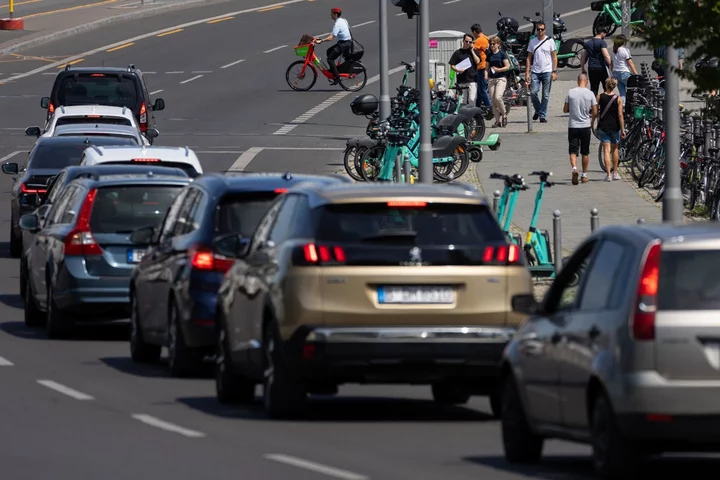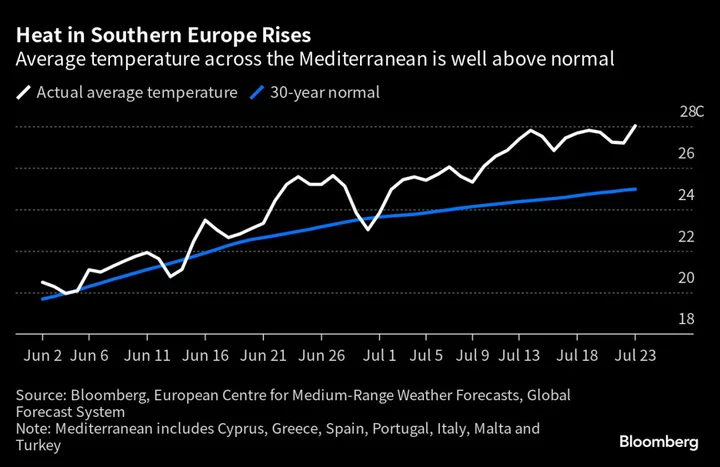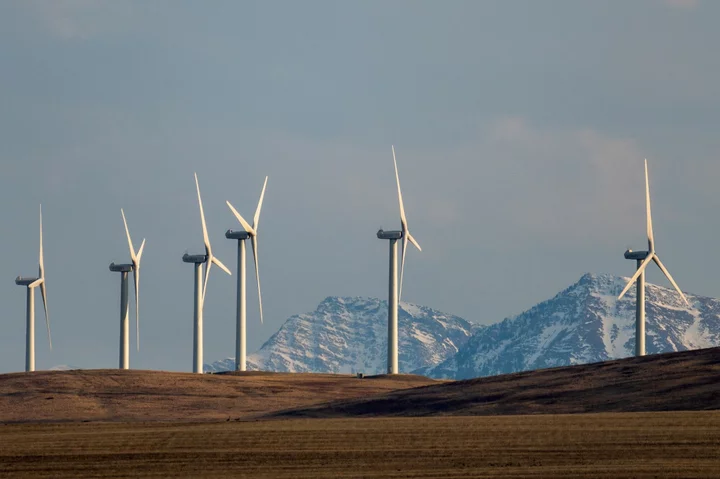Germany will lift a levy on polluting fossil fuels used in housing and transportation to €40 ($44) per ton in 2024 and to €50 in 2025, a political compromise that pushes some of the additional costs of decarbonizing further into the future.
Increasing the carbon price — currently at €30 per ton — will translate to consumers paying roughly 3 cents more per year for each liter of gasoline or diesel, according to people familiar with the plans, who asked not to be identified discussing confidential information.
A German government official, who also requested anonymity, separately confirmed that the price is set to rise to €40 at the beginning of next year.
The decision on the carbon pricing ends weeks of wrangling between senior officials in Chancellor Olaf Scholz’s ruling coalition. Finance Minister Christian Lindner from the business-friendly Free Democrats sought to limit the increase while persistently high inflation strains consumers in Europe’s largest economy.
At the same time, Economy Minister Robert Habeck, a member of the Greens party, faced pressure from his party base to push for a bigger hike next year to €45.
Read more: Germany Boosts Climate, Chips Fund to €212 Billion in Green Push
Lindner said earlier Wednesday that he’s keen to “avoid excessive burdens” on German households and companies.
“We are providing targeted support for the switch to new technologies and preventing structural economic disruptions,” Lindner said in an emailed statement. “At the same time, this also means that we must proceed with a sense of proportion when it comes to CO2 pricing, particularly in view of the current weakness in growth.”
To help reach its goal of climate neutrality by 2045, Germany introduced the carbon price in 2021 at €25 per ton and raised it the following year to €30.
It was initially meant to rise to €35 this year, but after Russia attacked Ukraine and the Kremlin halted gas deliveries to Germany, Scholz’s ruling coalition decided to postpone the increase to shield households and companies from even higher energy costs.
--With assistance from Petra Sorge.
(Updates with detail on carbon price, Lindner comments starting in third paragraph)









